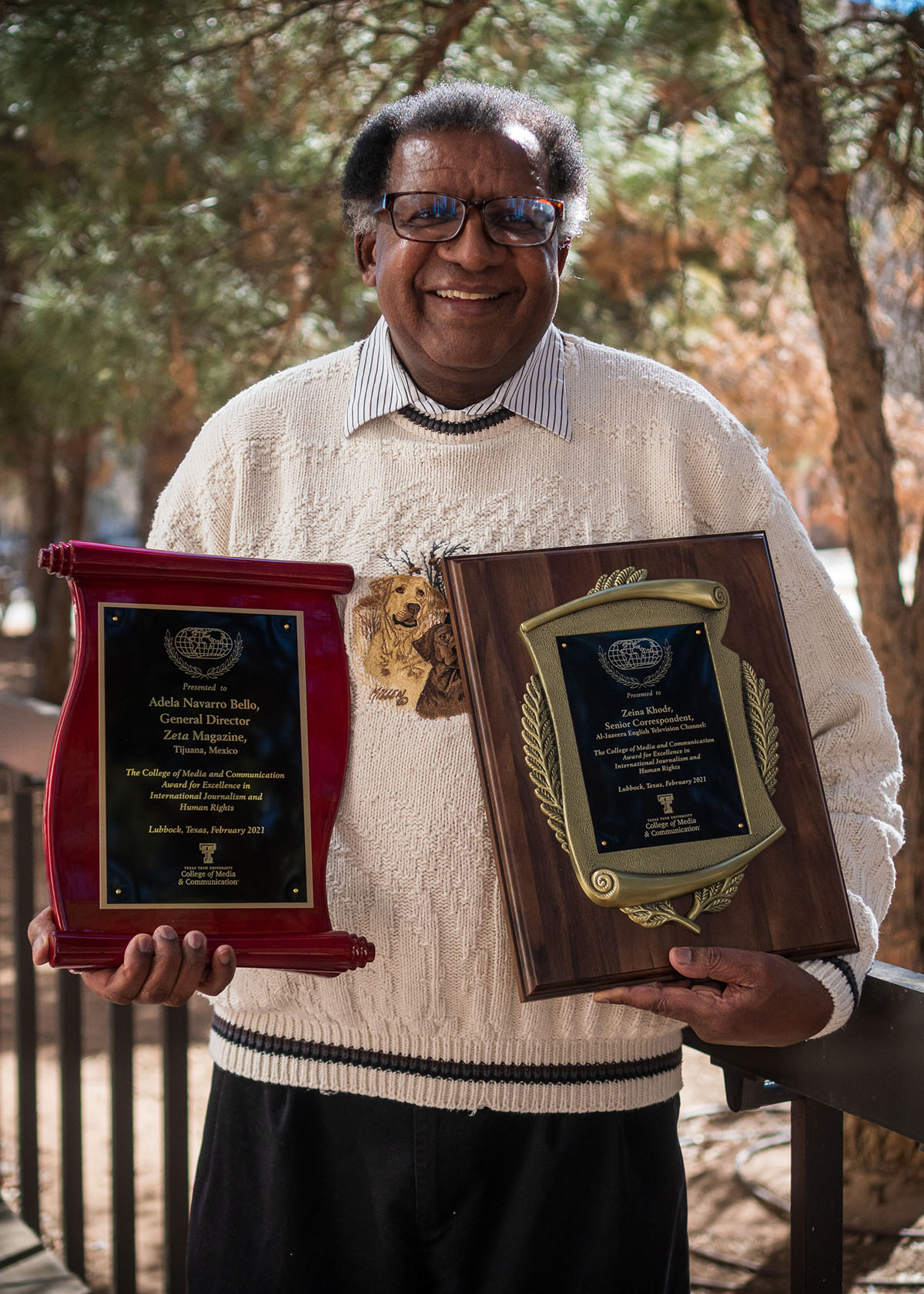
Lyombe Eko, Ph.D. discusses how important media was during the civil rights movement when voices needed to be heard.
Lyombe Eko, Ph.D., began his journalism journey when he was just a child. With a radio that was gifted to him as a boy, he could hear all the news happening around the world, which encouraged him to be the journalist he is today.
By knowing French, English and German, and being born in West Africa, Eko became a jack of all trades and had the opportunity to start his higher education in the United States at Sioux Falls University in South Dakota.
However, he did not stop there and used his bachelor's degree in media & communication as a jumping point. With his interest in radio and documentaries, he got his master's degree in mass communications from Wheaton College in Illinois.
“I then went back to Africa,” Eko said, “I was gone for 12 years. I was producing documentaries, I worked in radio, I worked in TV in Cameroon and in Kenya.”
Eko said it was time for him to put his degrees to another use as he was burnt out. He decided to get his doctoral degree from Southern Illinois University in 1997. Now with a wife and two children, Eko was hired by the University of Maine to restart its broadcast program.
After some time and gaining a new experience in the journalism world, Eko went to the University of Iowa to teach and serve as the director of graduate studies. This is where he met current College of Media & Communication Dean David D. Perlmutter, Ph.D., who was the director of the School of Journalism there. Perlmutter is the one who influenced him to move to West Texas.
“He kind of recruited me,” Eko said. “I came down here and [my family ] likes it. I really do like it, and there's no place like Texas.”
After Eko became established at Texas Tech, he said he still wanted to do more, especially with human rights.
While he was teaching, Eko said he continued to see people getting arrested or convicted just for reporting, even people he knew.
Since he has been a journalist, he said he grew a heightened sense for human rights, especially human rights in Africa. In Texas, Eko created a non-profit called the West Texas Human Rights Retreat, a project he is currently working on in Fort Davis. According to their website, the non-profit was set up as an “international haven of freedom of expression and human rights.”
Eko said at the retreat, people who have been unjustly prosecuted, jailed and tortured outside of the US can go to relax in the remote area of West Texas. Journalists from other countries are not given the same freedom of expression as US journalists, so Eko wanted to create a safe space for those individuals. He wants people there to feel they have liberty and learn their country's regimes are not the norm worldwide.
Eko cites the Civil Rights Movement as one of his largest inspirations to become the man he is today.
He said he always heard Martin Luther King Jr.'s “I Have a Dream” speech and James Brown's lyrics over the radio – “Say it loud, I'm Black and proud.” Eko said these movements resonated with people in Africa.
“In a way, African Americans made us part of the global Black consciousness movement. So we were there.” Eko said.
The media opened their eyes, Eko said, to the reality of America at that time.
One of his favorite memories is visiting the Ebenezer Baptist Church, located in Atlanta, Georgia, and the church home of Martin Luther King Jr. He attended the New Year's Eve service, where he learned not only the significance of the church, but why New Year's Eve was extremely important to African-Americans. In 1863, New Year's Eve was the night of liberation and when the Emancipation Proclamation took place.
“We sat there and it was the most moving service I had ever been to,” Eko said.
Eko has had a long journey that has led him to the College of Media & Communication. His expertise and knowledge are going to continue encourage and empower CoMC students.
“Black History Month for some people is a month for remembrance,” Eko said, “but for me, it's a time for celebration, celebrating how far we've come.”
[Read more stories about Black excellence in the College of Media & Communication.]
